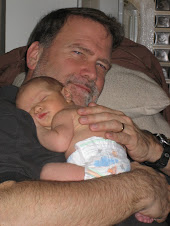This story, reported by Todd Rhoades' Monday Morning Insight, is notable for two reasons. First is the content. Irving Bible Church's elders made the decision to allow their female Pastor to Women, Jackie Roese, to preach Sunday in the worship service--the first time a woman had been given the right to do so there. IBC is a conservative, evangelical Bible church with strong ties to Dallas Theological Seminary, and this marks the first time of which I am aware that one of the Bible churches within that circle has had a woman preach. Further, the elders have indicated their belief that this is the proper theological direction for the church--espousing what they call "an ethic in progress." Even so, they have concluded that the role of elder is given solely to men, so Mrs. Roese's preaching will be under their authority.
This leads me to the second notable fact--this represents an attempt to place the ability of a woman to preach to the congregation within a "complementarian" framework--that is, it maintains the idea that there are distinctions in roles between men and women within the church (the home would be the second venue of such distinctions, but is not discussed in this report). Most who believe that women are free to preach in churches hold "egalitarian" perspectives (that there are no continuing distinctions of roles between male and female within the church--some would add the home as well--based on their interpretation of Galatians 3:28 and the view that restrictions in 1 Corinthians and 1 Timothy apply only to the specific cultures and times in which those passages were written). IBC's elders have concluded that women may exercise a preaching gift over women and men.
Is preaching the same thing as exercising authority? And if so, should a woman do so? For most of us, preaching/teaching carries more than the idea of dispensing information--it involves a call to response. It would seem that a preacher, by virtue of his (or her) activity, is in some way exercising authority. In 1 Timothy 2:12, Paul says he does not "permit a woman to teach or to exercise authority over a man..." in the context of public worship, basing this on both the created order (man was created first, then woman) and order of deception in the fall (the woman led the way in being deceived). Some look at verse 12 and see two activities--she may not teach and she may not exercise authority. Others (also complementarians) believe the grammar points to the idea of "teaching as an authoritative leader." It would seem that the elders at IBC have opted for this view and then said that, as long as they (the authoritative leaders of the church) have asked her to preach the Word, then her teaching is actually under their authority.
This is a similar paradigm as was used by Kay Arthur of Precept Ministries in settings where she taught men and women in church gatherings. I'm told that she would even wear a hat to symbolize that she was teaching under her husband's authority and that of the church leaders.
In some of my travels overseas, I have observed that women often fill roles in churches that would be seen by most American complementarians as those that should be filled by men. In some cases those churches make no distinction between male and female roles, but other times it is clear that women are leading prayer, leading singing, taking the offering, or even preaching, only under the authority of male pastors or elders.
Whatever their reasoning, IBC's elders' decision has already had the effect of causing the President of DTS, Dr. Mark Bailey, to remove himself from the list of regular guest speakers at the church. Pastor Tom Nelson, well known and respected leader of Denton Bible Church, has spoken out against this decision as well. Whether it will prove to be an anomaly that isolates IBC from its fellow Bible churches, or the first crack in a dam among them, is a question whose answer will only emerge with time.
Tuesday, September 02, 2008
Subscribe to:
Post Comments (Atom)





No comments:
Post a Comment